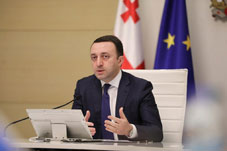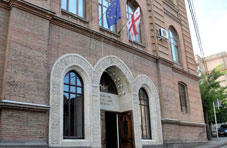
Georgian gov’t establishes commission to ensure de-occupation and peaceful conflict-resolution
By Khatia Bzhalava
Tuesday, June 22
Per the decision of Prime Minister of Georgia Irakli Garibashvili, a government commission has been established to develop and implement Georgia's State Strategy on De-Occupation and Peaceful Conflict-Resolution. A working group will be set up under the government commission in order to develop an inclusive and comprehensive state strategy by the end of this year.
According to the Press Service of the Government Administration, the aim of establishing the government commission is to develop a unified state approach and strategic view of the country's de-occupation, unification, and peaceful conflict resolution. The process will involve state agencies and institutions as well as civil society, including research centers, NGOs, experts, conflict-affected persons, and the public.
The press service reports that numerous meetings, dialogues, discussions, and consultations will be held this year, both on an interagency level and with the engagement of civil society “to develop under the common nationwide process a state vision of a peaceful and unified Georgia of tomorrow.”
At the same time, intensive processes will be implemented with Georgia’s strategic partners to ensure the involvement of the international community in the process of the country's de-occupation and peaceful conflict resolution.
The government commission and working group will be led and coordinated by the Ministry of Foreign Affairs. According to Foreign Minister David Zalkaliani, the involvement of the public is crucial in creating a renewed, complex, and comprehensive peace policy, which will be result-oriented. Zalkaliani stressed that against the background of difficult geopolitical challenges and the deterioration of the humanitarian situation in Abkhazia and Tskhinvali, it is necessary for Georgia to take even more effective and specific steps and have a proactive policy.
The new strategy will cover the following areas: The Geneva international format, the 2008 ceasefire agreement, the strengthening of international security mechanisms, the return of refugees, the de-escalation of the humanitarian situation, and Russia's non-use of force.


